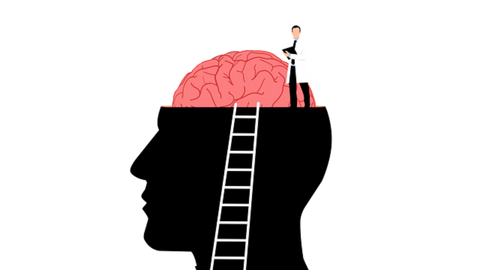3 Min Read
By Shady S. Shebak, MD
Central to mental health assessment is the use of reliable and validated assessment tools. Among them are the mental health tests. In order to accurately conduct diagnosis, prognosis and assessment of symptoms, mental health professionals, specifically psychologists, have developed various types of tests that screen and test for psychiatric and psychological conditions. Some tests are screeners for mental disorders, while others may test language, cognitive functioning, social functioning, and more. Some of the categories of psychological tests can be found below:
Neuropsychological Tests:
If a neuropsychological cause is suspected in an individual, the clinician could use paper and pencil or a computerized test to determine any deficit in sensorimotor and cognitive capacities. These tests can vary and may include games and tasks that help create a profile of a person’s cognitive and executive functioning.
Some evaluations may include common screenings such as the Mini-Mental Status Exam (MMSE) or the Montreal Cognitive Assessment (MOCA), commonly used when there is memory loss or overall cognitive decline.

Intelligence Tests:
These tests are commonly known as IQ tests. A psychiatrist or psychologist may recommend or conduct an IQ test when a patient is struggling at school, at work, or as part of a broad work up for social and emotional problems. For example, and IQ test may be given to someone as part of an ADHD assessment, along with other psychological assessments. It may be given to someone who is struggling in one or more academic subject as part of an academic evaluation, in order to ascertain if a student needs extra help, or to find out where a student’s strengths and weaknesses are, so we can focus our treatment plans accordingly. There are common IQ or intelligence tests, some that require paper and pencil, some that may be administered on a computer, and some that require puzzles and games. Some of the common IQ tests are:
-
Stanford-Binet Intelligence Scales
-
Weschler Adult Intelligence Scale (WAIS)
-
Weschler Intelligence Scale for Children (WISC)
-
Reynolds Adaptive Intelligence Test (RAIT)
Interpretation of IQ test results should be done with a trained psychologist or psychiatrist. While a score of 100 is considered average, the entire profile must be examined before we make a determination of the patient’s needs and cognitive ability.
Symptom Questionnaires:
Symptom screenings are often done as part of a routine follow up appointment or at the initial visit to determine the subjective experience of the patient with their mental health struggles. They may also be done in conjunction with other psychological testing, as part of a broader mental health evaluation. Common screeners include ones designed to assess for depression, anxiety, ADHD, bipolar disorder, and more. Below are some of the more well known screening tools:
-
Patient Health Questionnaire (PHQ)
-
Beck Depression Inventory (BDI)
-
Conners Comprehensive Behavioral Rating Scale
-
Vanderbilt Assessment Scales
-
Brief Rating Inventory of Executive Function (BRIEF)
Personality Inventories:
These are questionnaires that are helpful in assessing people's typical manner of behavior, thinking and feeling. Personality tests or inventories provide the fundamental information on assessing a person's well-being (a very important aspect in mental health), ways of coping, self-concept, perception, attitudes, beliefs and vulnerabilities.
Some personality tests are geared toward finding abnormal personality and behavioral functions, so that a psychiatrist or mental health provider may better focus their treatment strategies. Other personality tests are used to determine strengths, coping strategies, and can be used by employers and/or teams to create a welcoming environment for various personality structures. These tests may also be used by individuals yearning to learn more about themselves to foster a better understanding of oneself.
Personality testing may be part of a broader psychological or psychiatric evaluation, and is often combined with various assessments, cognitive testing, and screeners. Some of the common personality tests are:
-
Personality Assessment Inventory (PAI)
-
Minnesota Multiphasic Personality Inventory (MMPI)
-
Myers–Briggs Type Indicator (MBTI)
-
NEO Personality Inventory (NEO)
-
DISC Personality Test (DISC)
At Core Psych, PLLC, we have a wonderful staff, capable of providing more information about psychological testing, as well as administer psychological tests when appropriate.
